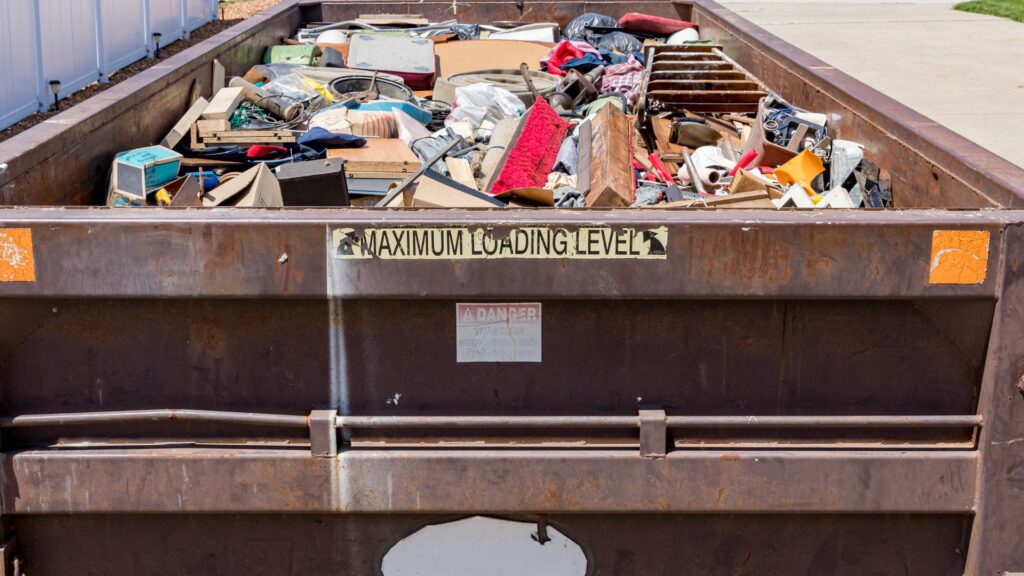Every year, millions of outdated phones, broken computers, and discarded household electronics are tossed aside, but where they end up and how they’re handled directly affects human health. Unlike general trash, e-waste contains toxic substances like lead, mercury, and cadmium, which can leach into soil, water, and even the air when disposed of incorrectly. This exposure has far-reaching effects, from respiratory issues to serious long-term illnesses. Proper e-waste disposal not only protects the environment but also safeguards the well-being of individuals and communities. Choosing eco-conscious solutions ensures that technological progress does not come at the cost of human health.
The hidden dangers inside electronic waste
At first glance, an old television or computer monitor might not seem threatening. Yet inside these devices lies a cocktail of hazardous materials. Lead, arsenic, mercury, and cadmium are commonly found in electronic components. When electronics are improperly disposed of in landfills or burned, these toxins are released into the environment, contaminating soil and groundwater. Over time, these substances seep into food chains, increasing human exposure to harmful chemicals.
The long-term effects of such exposure are alarming. Lead, for example, is linked to neurological damage, especially in children. Mercury can affect kidney function and impair brain development. When individuals are regularly exposed, even at low levels, the risks accumulate. Proper e-waste disposal prevents the release of these substances, ensuring that communities do not become vulnerable to invisible yet devastating health threats.
How e-waste impacts air and water quality
When electronics are incinerated, they release harmful gases and particulate matter into the air. Burning plastics and circuit boards generates dioxins and furans, toxic compounds that contribute to respiratory problems and increase cancer risks. These pollutants travel long distances, affecting not only the immediate area but also neighboring communities. Breathing in contaminated air poses significant risks to people with asthma or weakened immune systems.
Improper e-waste disposal also threatens water supplies. Heavy metals and chemicals leach from landfills into groundwater, contaminating rivers, lakes, and reservoirs. This pollution directly affects drinking water and aquatic life. Communities relying on such sources often face heightened health risks, including gastrointestinal illnesses and reproductive problems. Proper recycling and responsible disposal practices prevent these pollutants from entering ecosystems.

The link between e-waste and human disease
Mounting evidence connects improper e-waste disposal with a wide range of human health problems. Workers in informal recycling sectors, often without protective gear, are particularly vulnerable. They dismantle devices by hand, inhale toxic fumes, and handle hazardous materials daily. This constant exposure leads to respiratory illnesses, skin conditions, and an increased risk of cancer. Communities living near unsafe e-waste disposal sites face similar health dangers, with elevated rates of chronic diseases reported worldwide.
Even consumers far removed from e-waste sites are not immune. Contaminated soil and water spread toxins through agriculture and fisheries, reintroducing hazardous materials into the human food chain. Studies link e-waste exposure to developmental delays in children, reproductive health issues, and weakened immune systems. Proper disposal and recycling significantly reduce these risks.
Why recycling electronics reduces toxic exposure
Recycling electronics is not simply about recovering valuable materials—it is a health safeguard. By dismantling devices in controlled environments, recyclers can safely remove toxic components and prevent them from contaminating air, soil, or water. This method ensures hazardous materials are contained and processed according to strict safety standards. Without recycling, discarded electronics become silent sources of toxins in landfills and incinerators.
Recycling also reduces the demand for mining and manufacturing raw materials. Extracting metals like copper, gold, and rare earth elements is not only energy-intensive but also harmful to local communities exposed to mining waste. Through recycling, we preserve resources while cutting down pollution at its source. Eco-friendly junk removal services make this process accessible by collecting electronics and delivering them to certified recycling centers.
The role of safe disposal in protecting children
Children are among the most vulnerable to the health impacts of e-waste. Their developing bodies absorb toxins more quickly, and even small exposures can lead to lifelong consequences. Lead exposure from improperly discarded electronics is especially dangerous, often resulting in cognitive impairment, behavioral issues, and learning difficulties. The risks extend beyond lead, as other heavy metals and flame retardants interfere with growth and development.
Ensuring proper disposal of electronics protects children from exposure at critical stages of their lives. Communities with safe recycling programs reduce contamination in soil, air, and water, creating healthier environments for children to grow. By prioritizing responsible e-waste disposal, families and businesses directly contribute to safeguarding young lives. Investing in eco-friendly disposal services is not only an environmental decision but also a commitment to protecting the next generation from preventable harm tied to electronic waste mismanagement.
How responsible e-waste management supports cleaner communities
When electronics are disposed of responsibly, communities experience immediate and visible improvements. Streets, neighborhoods, and landfills are less cluttered with hazardous materials. Local recycling centers create cleaner environments by diverting toxins from entering shared ecosystems. These changes improve overall quality of life, providing residents with healthier surroundings. Cleaner communities also see reduced cases of pollution-related illnesses, strengthening public health systems.
Additionally, responsible e-waste disposal fosters a culture of environmental responsibility. When residents see neighbors or businesses recycling electronics, it encourages collective action. The ripple effect creates communities that value both sustainability and health. Eco-friendly junk removal services play a pivotal role in this transformation by making proper disposal convenient and accessible. Through consistent practices, communities not only reduce environmental risks but also build resilience against future challenges.
The economic benefits of safe e-waste disposal
Health and the economy are more connected than many realize. Improper e-waste disposal often leads to public health crises that strain medical systems and reduce workforce productivity. Respiratory illnesses, cancers, and neurological conditions linked to e-waste exposure cost communities millions in healthcare expenses each year. Preventing these outcomes through safe disposal reduces the burden on families and governments alike.
Recycling electronics also provides economic opportunities. Recovering valuable metals lowers costs for manufacturers and creates jobs in the recycling sector. These industries are safer and more sustainable compared to informal e-waste handling. Communities that invest in proper disposal infrastructure not only protect residents but also stimulate local economies. Eco-friendly junk removal services contribute by bridging the gap between households, businesses, and recycling facilities. In this way, safe e-waste disposal is both a public health necessity and a driver of long-term economic growth.
How individuals can contribute to safe disposal
While the responsibility of managing e-waste often falls on services and governments, individuals play an equally important role. Choosing not to throw electronics in household trash is the first step. Instead, people can take advantage of local recycling centers, collection events, or eco-friendly junk removal services. Even small actions, like donating working electronics or trading in old devices, help reduce waste and protect health.
Awareness is just as crucial as action. Educating family, friends, and coworkers about the dangers of improper e-waste disposal multiplies the impact of individual choices. By making sustainable disposal a shared value, communities move closer to reducing harmful exposure. Everyone has the ability to protect their health by being intentional about how electronics are discarded..
Why businesses must prioritize e-waste recycling
Businesses often replace electronics in bulk, from office computers to industrial equipment. If handled irresponsibly, this large volume of e-waste significantly increases health risks for employees and surrounding communities. By partnering with eco-friendly junk removal services, businesses ensure that hazardous materials are kept out of landfills and managed responsibly. Beyond compliance, this choice demonstrates social responsibility and care for public health.
Prioritizing e-waste recycling also benefits business operations. It creates cleaner workspaces, reduces storage costs, and aligns with sustainability goals that many consumers now expect from companies. Organizations that invest in proper disposal show leadership, setting a standard for others to follow. By preventing toxic exposure and demonstrating accountability, businesses strengthen both their reputation and their commitment to healthier communities. Corporate responsibility in e-waste management is no longer optional; it is an essential practice for organizations seeking to protect both people and the planet.
The long-term vision of healthy waste management
Proper e-waste disposal is not just about immediate health protection—it is an investment in long-term sustainability. Each step taken to recycle or safely discard electronics builds a healthier foundation for future generations. Over time, consistent practices reduce the presence of toxins in soil, water, and air, creating environments where diseases linked to pollution become less common.
This long-term vision aligns with global efforts to combat climate change and improve public health simultaneously. It highlights the connection between environmental stewardship and human well-being. By adopting eco-friendly junk removal and recycling systems, communities ensure that progress in technology does not come at the expense of human lives. Looking ahead, responsible e-waste management will remain a cornerstone of healthier societies, where growth and innovation exist alongside a commitment to protecting health. It is a vision where waste becomes an opportunity rather than a threat.
Conclusion
Proper e-waste disposal is far more than an environmental concern—it is a matter of protecting public health. Electronics contain harmful substances that can damage air, water, and soil, ultimately impacting the well-being of entire communities. Responsible recycling and disposal practices prevent toxic exposure, reduce the spread of disease, and build healthier futures. For residents and businesses in Santa Rosa, CA, North Bay Junk Removal provides professional junk removal services designed with both health and sustainability in mind. By choosing this trusted team, you not only clear clutter but also contribute to safer, cleaner surroundings. To schedule service or learn more about responsible disposal, contact North Bay Junk Removal at 707-478-6817. Making the decision to recycle and dispose of electronics properly ensures healthier communities today and protects the environment for generations to come.

